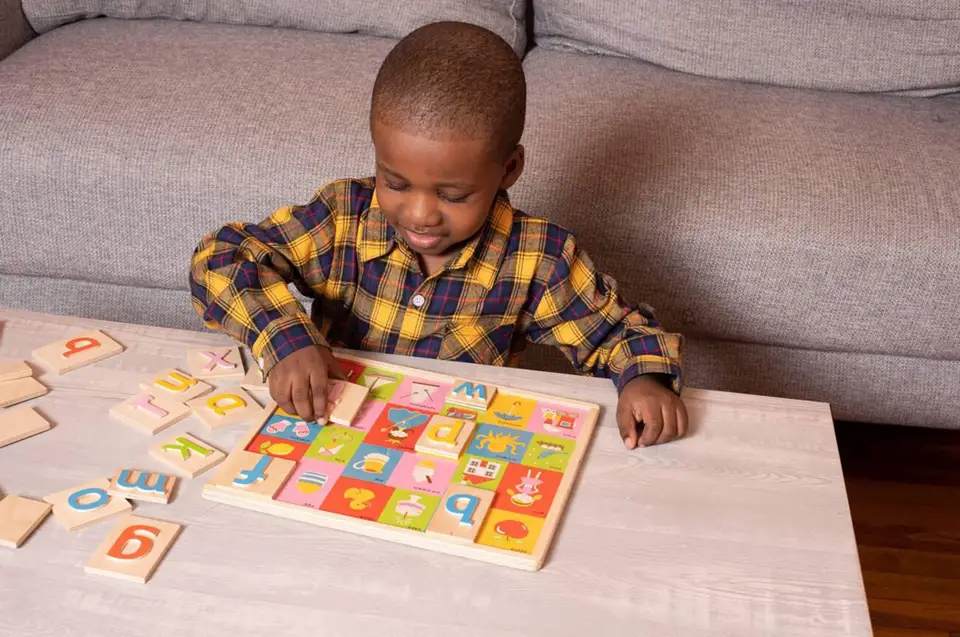To excel in developing fine motor skills, a level of time and dedication is essential, especially for children with special needs. The focus is on improving the dexterity of hands, and fingers, as well as subtle mannerisms.
Play is crucial for children to build hand control, strength, and attention to detail, enabling them to perform tasks such as eating, drawing, reading and writing. Incorporating playtime activities into their daily routine helps children practice and develop the required awareness, planning, and coordination abilities. Regular practice at home can enhance the rate of your child’s growth by enabling them to integrate practices into all elements of their life.
Fine motor development should continue outside of private therapy and school. Incorporating certain activities at home can further enhance a child’s skills and aid them in achieving measurable growth.
Pattern/Shape-Oriented Games and Activities
Tactile games and activities that involve solving pattern and shape-based problems and achieving specific goals can play a significant role in the development of important fine motor skills. By physically manipulating objects and working through the challenges presented in these games and activities, children are able to improve their dexterity, hand-eye coordination, and problem-solving abilities.
Additionally, the repetitive nature of these activities helps to reinforce the concepts being taught, such as recognizing patterns, sorting shapes and colours, and matching letter and number symbols to their corresponding names. The tactile aspect of these games also helps to engage the child’s sense of touch, promoting sensory development.
Such activities include building blocks, placing wooden shapes into matching slots, and stringing beaded necklaces and decorations. Additionally, these activities can aid in learning the alphabet and further language development.
Clean Up at the End of Playtime
Playing with toys is a source of delight for children, and they often love spreading them across their playspace. Unfortunately, cleaning up the toys can be a challenging task that usually falls on the parents. However, one effective solution is to make cleaning up a game in and of itself. By incorporating fun games and activities into the clean-up process, children can obtain fundamental skills about organization and responsibility, all while having a blast.
Utilizing storage bins is one such activity that can help children learn about cleaning up in a fun and engaging way. After they dump out their toys, they can draw from their organizational skills and focus their attention to put everything back in the designated storage box. This requires more effort and focus than simply jamming all toys back into a single storage bin, and helps children develop important skills like hand-eye coordination and dexterity. Also, by using their thumb and pointer finger to grasp the toys, they will improve their fine motor skills. A fun way to incorporate the pincer technique is to pretend their fingers are the end of a crane or other machine.
Clay and Moulds
Playing with clay materials can greatly enhance a child’s creativity, critical thinking, and strength within the hand muscles. Play-Doh is a popular choice among kids and is proven to naturally improve their fine motor development. To further enhance this experience, you can introduce additional tools such as rolling pins, child-friendly cutting utensils or plastic pizza cutters to cut the Play-Doh.
Encourage children to use their imaginations when developing their creations, emphasizing that anything is possible. To create a sense of inclusion, they can mimic meals similar to what’s being cooked for dinner in your kitchen. This not only fosters their imagination but also provides a bonding moment through “cooking” alongside their parents.
Physical Board/Card Games
Physical games like Checkers, Snakes and Ladders, and Uno are excellent ways to develop fine motor skills in children (and adults). The act of sliding game pieces with fingers, tossing out a dice roll, and shuffling cards help improve strength and dexterity in the fingers and hands. Additional skills, such as turn-taking, counting, and social interaction can help children learn about the consequences of their actions, and develop their ability to strategize and plan while fostering teamwork and cooperation.
An Important Piece to the Puzzle!
Though encouraging your children to incorporate these skills into their playtime is an excellent start, their progress can accelerate with the addition of parental involvement. Ensuring they are provided with a supportive space to explore, learn and build upon their skills (without chastising them for their errors) will enable your children to develop the confidence to take initiative in seeking out such development as they progress through life.







